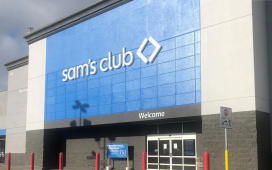
BRAZIL – 2019/12/18: In this photo illustration the Groupe PSA logo is viewed on a smartphone and … [+]
As Groupe PSA and Fiat Chrysler Automobiles cross the t’s and dot the i’s on their merger agreement, there are a plethora of perspectives on what it means for the industry at large.
Analysts are theorizing that this is the beginning of a broad consolidation as manufacturers prepare for slowing sales and the uncertainty of automation, ride-hailing and whatever else awaits on the horizon of alternative transportation.
Here are a few thoughts on what’s plausible, what’s smart and what’s risky about this latest global tie-up.
First, the PSA-FCA merger is largely a consequence of the late Sergio Marchionne’s 2015 tome, “Confessions of a Capital Junkie.” Marchionne was enough of a visionary to know that FCA couldn’t make it alone through the industry’s next downturn, and still prepare itself for the head-spinning technological and cultural changes that are already buffeting automakers.
It also is a much wiser match than the bid from Groupe Renault that FCA rejected last June after the French government, which owns 15% of Renault, was demanding a seat on the combined company’s board and that the headquarters remain in Paris.
The French government also owns a 12.23% stake in PSA, but appears to be supportive of this new deal.
The Likely Benefits
Scale is often the primary driver of mergers, especially in capital intensive industries such as automobile manufacturing.
Each brand will preserve its identity through engineering, design and marketing of its vehicles, but together PSA-FCA will be the fourth largest automaker in the world. That enables it to save on everything from steel to accounting systems to battery development.
There is little overlap in the geographic markets each brand serves.
In the U.S., Jeep and Ram will build on their strengths in the SUV, pickup and cargo van markets. Fiat and Alfa Romeo will remain dominant in Italy, while Peugeot, Citroen will maintain their prominence in France.
CEO Carlos Tavares likely will cancel PSA’s pending return to the U.S. market, saving the cost of launching a new dealer network and marketing staff.
Two years ago PSA acquired the Opel and Vauxhall brands from General Motors, spreading its reach to Germany as well as the Brexit-related uncertainty of the U.K.
That acquisition, for 1.9 billion British pounds, or $2.5 billion, made PSA Europe’s second largest automaker after Volkswagen.
Another positive: PSA could jumpstart FCA’s electric vehicle capability. FCA has sold about 62,000 of its plug-in hybrid Chrysler Pacifica minivans to Waymo, which converts them for deployment in its self-driving fleets.
Jeep plans to launch electric versions of its small and mid-size SUVs in about two years. But PSA’s EV agenda is much more ambitious.
The French automaker will introduce all-electric versions of all its models in about five years, starting in early 2020 with the Opel Corsa-e and the Peugeot e-208. Both will have a range of about 200 miles and carry base prices of about $34,000.
The Biggest Risks
With many mergers in this industry, there’s a lot that could go wrong, especially on the cusp of a global slowdown in car sales.
Chrysler survivors know this first hand. First, DaimlerChrysler fizzled when the German parent lost interest in the America stepchild.
Then came the ill-fated stewardship of Cerberus Capital Management. The private equity titans, with no previous experience in the industry, stumbled along delivering Chrysler at the doorstep of American taxpayers, who provided a $6.6 billion bailout that enabled the merger with Fiat.
Amid the celebratory announcement of the deal, PSA’s Tavares and FCA CEO Mike Manley declared the merger would not result in any plant closings or job losses.
But it’s no secret that making electric vehicles is less labor intensive, and there are no easy pathways to profitability in ride-hailing or other “new mobility” ventures. Just ask Uber and Lyft.
So, when the tough decisions arise, don’t expect the French government to be passive when it comes to protecting jobs.
Ironically, in this apparently market-driven combination, a European government is not putting up any money, but could exert pressure down the road.
By contrast, the U.S. government approved the 2009 bailout while promising not to intrude on management decisions.
Finally, the benefits of global mergers may face deeper uncertainty in the wake of the Trump administration’s nationalist trade policy.
It’s no accident that General Motors has vacated Europe. Or that Ford is cutting 12,000 jobs and closing six European plants by the end of 2020.
But don’t underestimate Tavares. He learned much about integrating contrasting cultures during his time at Renault and Nissan, where he was second-in-command to CEO Carlos Ghosn.
He left to take the helm at PSA in 2013 when it was struggling. Today the company is profitable, posting a record 8.7% operating margin through the first half of 2019.
.








